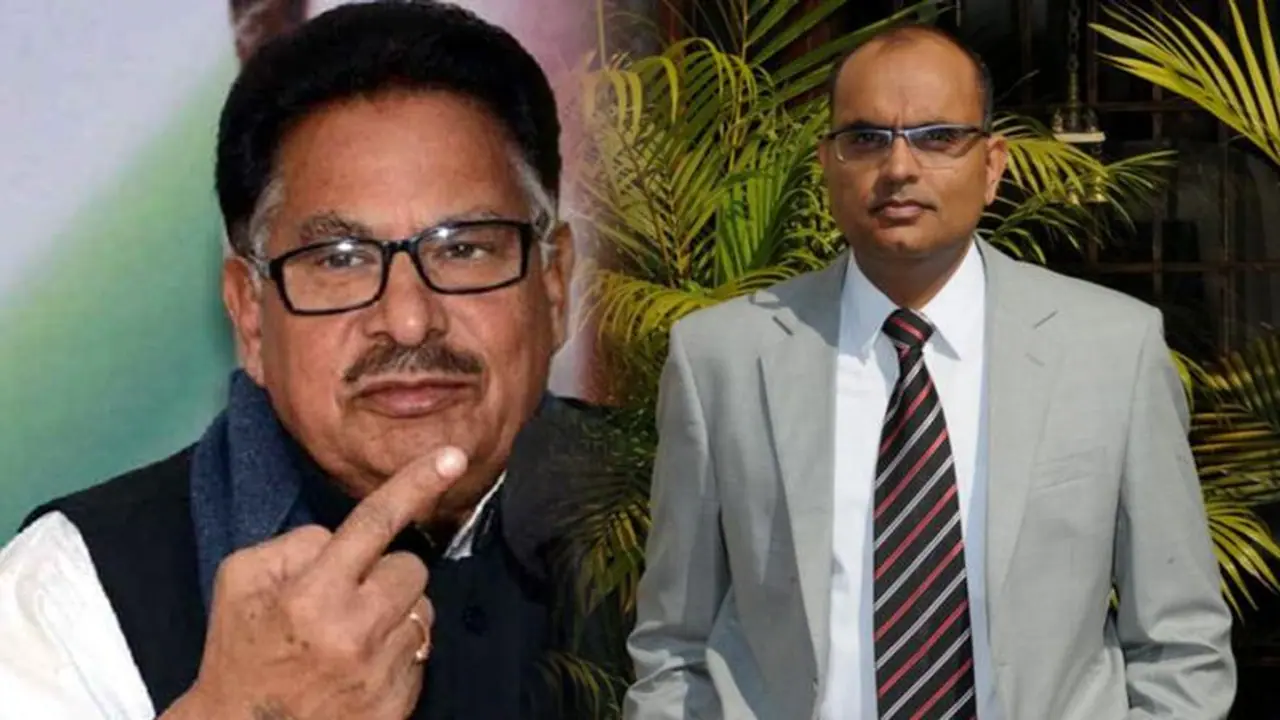It is believed that one retired bureaucrat played a very crucial role to achieve victory in the state for the Congress. This leader’s name is PL Punia, a retired IAS officer from Uttar Pradesh cadre and state-in-charge of the party. Apart from that, another bureaucrat Aman Kumar Singh, the principal secretary of the chief minister, is criticising the outgoing Raman Singh government. Both retired bureaucrats were known as ‘Super CM’ in power corridors
New Delhi: The Congress announced Bhupesh Baghel as the chief minister of the Chhattisgarh on Sunday after a long consultation with newly-elected MLAs and national leadership. The Congress got 68 out of 90 Assembly seats; while the BJP, who has been ruling in the state for 15 years, suffered losses as their tally came down from 46 to 17 seats after the Assembly poll results were declared in Chhattisgarh.
It is believed that one retired bureaucrat played a very crucial role to achieve victory in the state for the Congress. This leader’s name is PL Punia, a retired IAS officer from Uttar Pradesh cadre and state-in-charge of the party. He got the responsibility in the same capacity four months ago in the state. Apart from that, another bureaucrat Aman Kumar Singh, the principal secretary of the chief minister, is criticising the outgoing Raman Singh government. Both retired bureaucrats were known as ‘Super CM’ in power corridors.
Common factor between these two bureaucrats
Both were recognised a ‘Super CM’ in the state. Let’s first talk about PL Punia, a 1971 batch IAS officer from Uttar Pradesh cadre who retired from civil service in 2004. He was very strong during the second term of the Mayawati government in Uttar Pradesh. In 2003, when he was the principal secretary of the CM, without his permission, nothing could happen in the state. Even strong political leaders - who claimed that they are very close to Mayawati - without his permission, could not enter the panchantal(chief minister’s office) in an annex.
In power corridors, he was notorious as ‘Super CM’ and was also a policymaker in the state as well as in BSP. The implementation of the party agenda and policies were on his shoulders. But what was very surprising is that when Punia retired from service in 2004, he joined politics and held Congress’s hand, and not of the BSP; while everyone knew about his relationship with the BSP chief.
He had contested the Assembly election in 2007 but lost; after that, the Congress believed him again and gave him a Lok Sabha ticket from Barabanki reserved seat, the adjoining district of the state capital in 2009. Punia strongly fought the election and got three lakh votes and defeated Rakesh Verma, the elder son of veteran SP leader Beni Prasad Verma.
Punia also contested the Lok Sabha elections in 2014, but a BJP candidate defeated him. Although the party sent him to the Upper House in 2015, before that, UPA-2 had appointed him as the chairman of the SC and ST commission. Punia had created an anti-government in the state and had motivated party workers to protest against government policies.
Even during his four months’ tenure as state-in-charge, he visited several remote areas of the state and organised rallies in these areas.
On the other side, Aman Kumar Singh, the principal secretary of outgoing chief minister Raman Singh, failed to disseminate government policies within the common man in the state. He was also in charge of information and public relations department but sunk to advertise good governance of the Raman government.
Singh was an IRS (custom & excise) officer from 1995 batch and went to the state through central deputation scheme in 2008 as secretary to the chief minister. But after some time he resigned from his revenue service and opted for state service on the contractual basis.
He has always shown his proximity to the chief minister and never gave respect to senior bureaucrats; that is why the majority of officers were against him and they had complained to Raman Singh, but he ignored senior officer’s grievances. When it was confirmed that the BJP was losing state and the Congress was coming to power, the state bureaucracy distributed sweets and congratulated each other. Despite the outgoing BJP, most bureaucrats were happy to bid farewell to Singh from power corridors.
Singh was the bridge between the party and the government, and ultimately everyone blamed him to bring failure to the government in the state.
